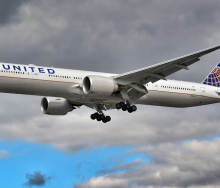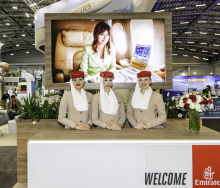A recent Travel News poll revealed that 41% of respondents are keeping their agencies small because they cannot find experienced consultants.
Airlines, airports and hotels have been vocal about the skills shortage. But the retail travel agency sector was hit hard by layoffs, retrenchments, short weeks and salary cuts during COVID and in South Africa this was prolonged when the re-start of travel in the country lagged behind the rest of the world due to the Omicron variant scare.
The problem is worldwide. In an interview with Australian Financial Review, Flight Centre Chief Executive Graham Turner warned that travel agencies in Australia risked reputational fall-out by angering customers with slow responses due to lack of competent staff. He described the pandemic as “cutting the legs off the travel industry, including agencies. Flight Centre alone dropped staff numbers from almost 21 000 to 7 000 across the globe”.
Are companies now discovering that they cut too deep at the start of the pandemic?
The long period when people’s livelihoods were impaired meant that a great deal of expertise and experience departed the industry as agents left in droves, some temporarily, but unfortunately, many permanently.
One of those forced to leave the industry during COVID is a senior travel consultant based in Cape Town who told Travel News that she was forced to stop consulting when she was retrenched. “I had to find other ways to make money and got involved in freelancing and teaching online. This is lucrative and flexible and much less stressful than travel. I love travel but I will never go back to being a consultant again. It’s simply not worth the angst and pressure I took on for the salary I was paid.”
At the other end of the scale, it’s now difficult to find experienced, senior staff. A travel agency owner based in KZN told Travel News that she had the potential to grow her business more than ever before, but she could not find suitable staff.
“I can’t even find candidates to interview in my area. There are very few experts looking for travel consulting jobs and those that are, are asking for much higher salaries to work as permanent employees. It seems very much like travel experts are high in demand and expect more for their experience and expertise. If I want to find the right staff to expand my business, I am going to have to pay much higher salaries, or employ on a contract basis.”
Otto de Vries, CEO of Asata, believes there are several factors that have contributed to the exodus of experts in travel.
“This is not a new problem. For years the travel industry has not been effective in taking in and training up new staff. Consultant salaries have always been low and now the balance has shifted. Because agencies and consortiums are hesitant to risk re-staffing on a permanent basis, many agents have been given the option or elected to come back to the industry as ITCs. They are earning more money on a commission-based income and enjoy the flexibility of working from home and it is highly unlikely that an ITC would go back to being employed full time on a set salary and sit in a travel office. The honey pot has been discovered and experienced consultants have realised that there is more money to be made and more flexibility working independently.”
Says De Vries: “Customers are more demanding now than they were prior to the pandemic and the industry has gone from zero to 100 miles an hour. Staffing shortages are exacerbating the problem and the possibility of burn-out is a real possibility for many consultants.”
But De Vries believes that the bigger problem is going to be recruiting new talent to the industry. “How do youngsters leaving college or university get into the travel industry? ITCs will not take on interns, they simply do not have the time to sit and train a new recruit.”
Franz Von Wielligh, Head of Innovation at XL Travel, says the group consists of independently owned and managed travel agencies, and therefore staffing needs differ from XL member to XL member, according to geographical location, market sector and operational needs.
Says Von Wielligh: “We have experienced a general shortage of qualified senior consultants across all market sectors, due to the fact that many senior consultants left the travel industry during the pandemic. A large number of consultants who did return have become independent consultants.
“Having said that, agencies that have invested in the adoption of technology and process-optimisation can mitigate the need for consultants to do repetitive and time-consuming tasks. These can grow without necessarily increasing their staff count.”
The complete results from the poll, collated in June, were:
We have no problem finding experienced staff (14%).
We take on ITCs because we don't want to employ (15%).
We are training up juniors and fast-tracking them because we can't find experienced agents (15%).
We are taking on ITCs because we can't afford experienced agents (16%).
We are keeping our agency small because we can't find experienced agents (41%).















